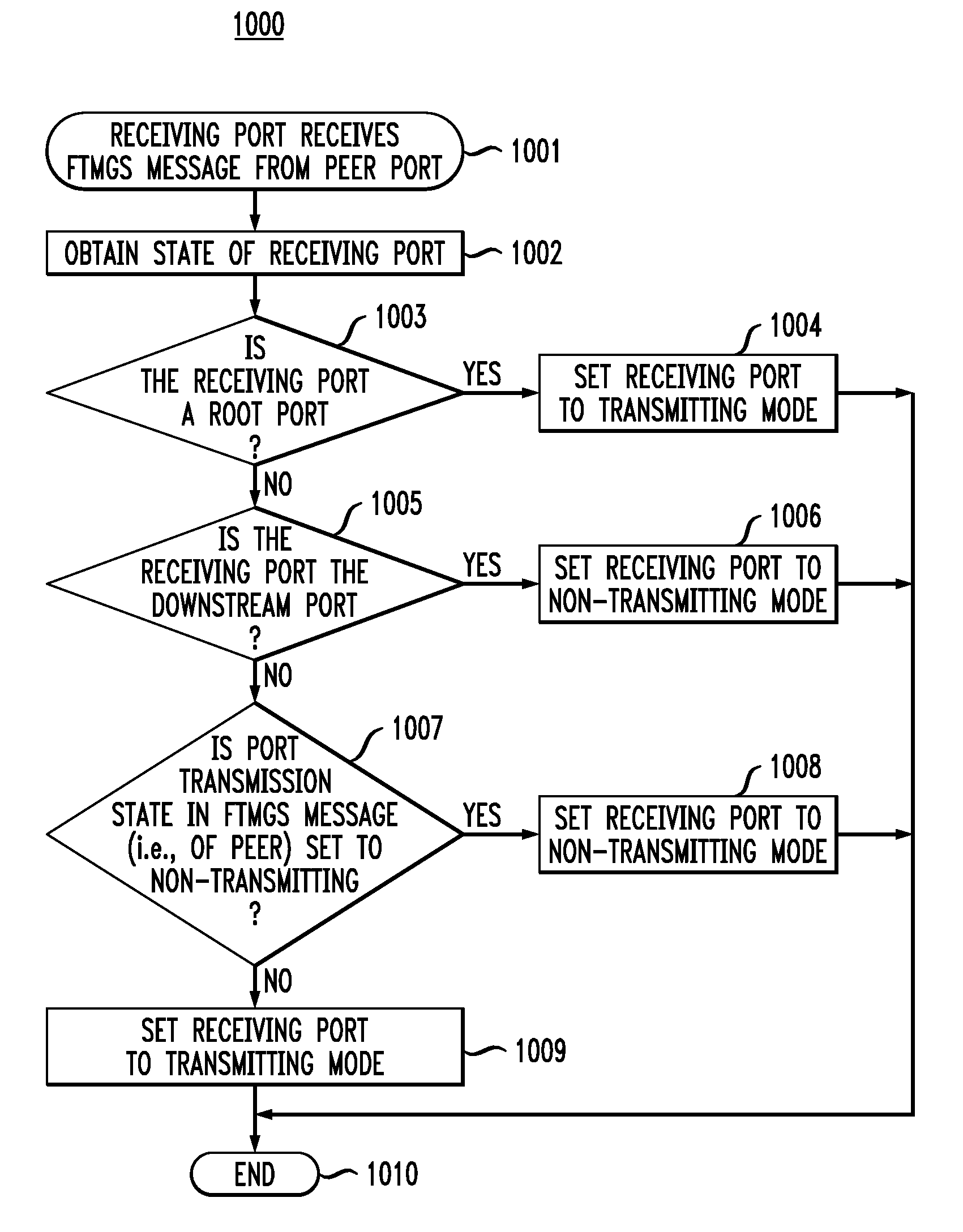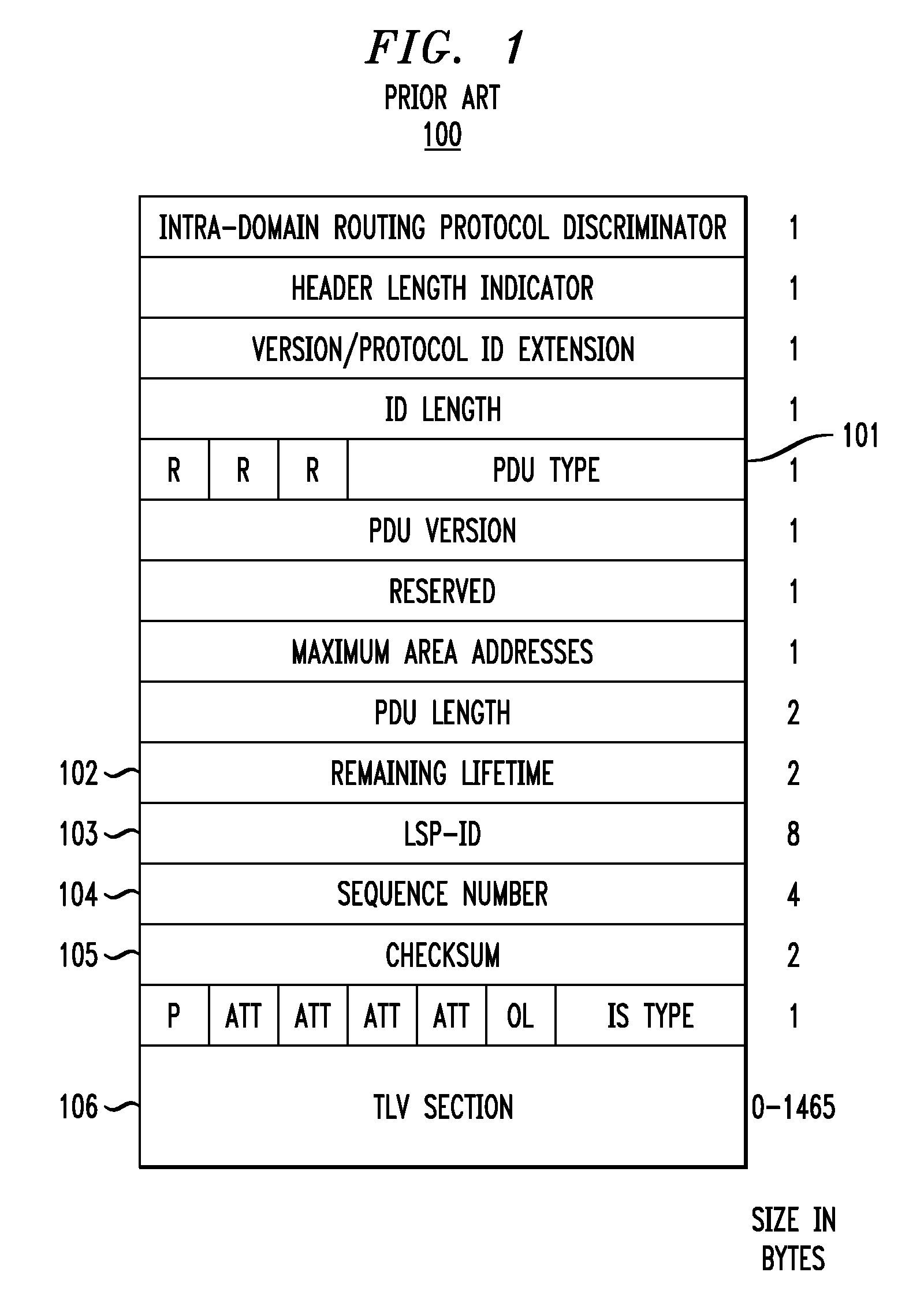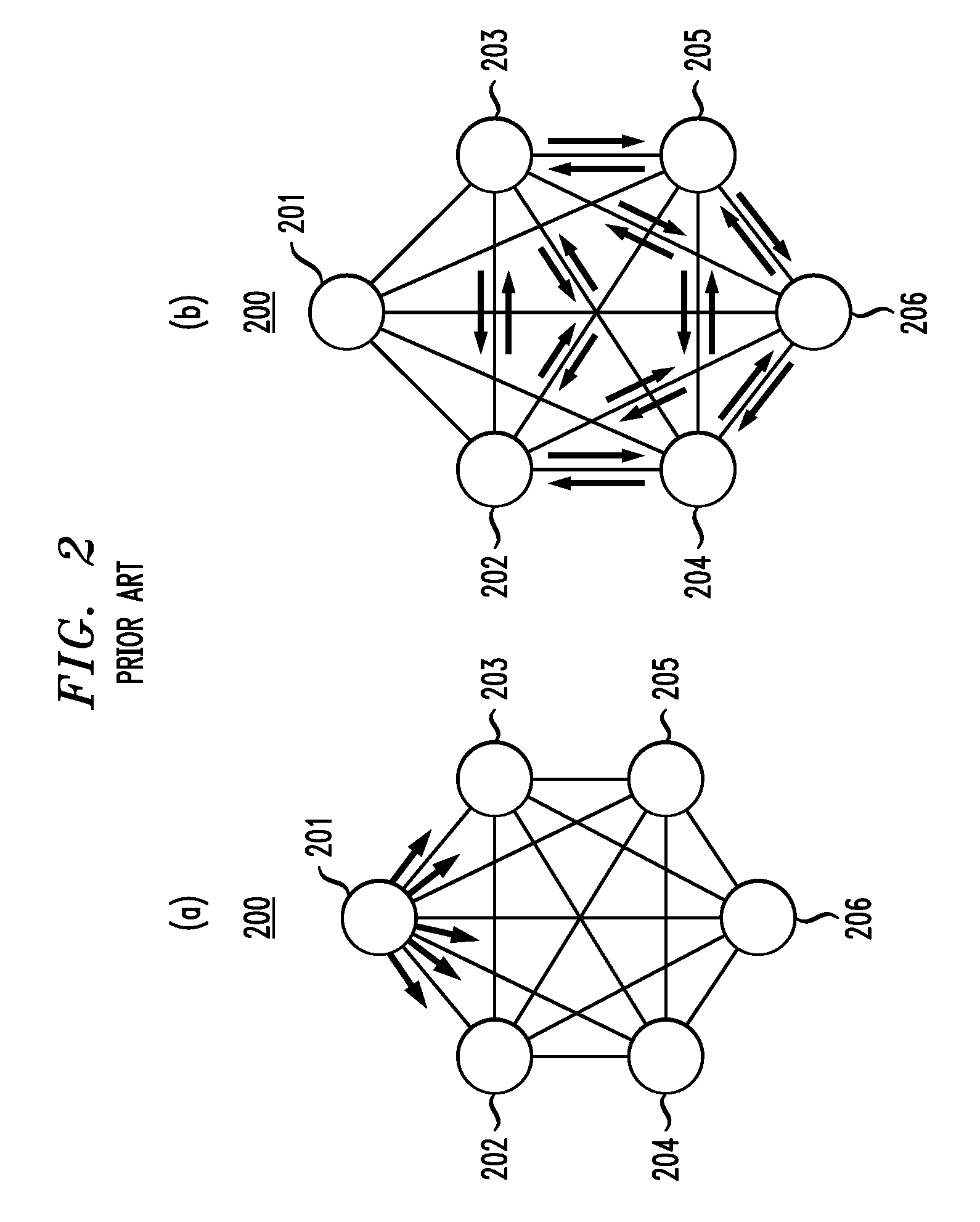Automatically configuring mesh groups in data networks
a data network and automatic configuration technology, applied in the field of data networks, can solve the problems of affecting the performance of the node, and affecting the processing speed of the node, so as to reduce the number of lsp packets sent out, avoid flooding lsp packets, and reduce the number of lsp packets. the effect of strain
- Summary
- Abstract
- Description
- Claims
- Application Information
AI Technical Summary
Problems solved by technology
Method used
Image
Examples
Embodiment Construction
[0042]Flow-through mesh groups may be set up in the form of a collection of one or more spanning trees. A spanning tree is a set of links that connects the nodes in the network without having link loops. A spanning tree is considered an efficient way to connect nodes in a network.
[0043]FIG. 6(a) shows spanning tree 607 in network 600, which comprises interconnected nodes 601-606. Spanning tree 607 consists of the five links, indicated in bold, from node 601 to nodes 602-606. Spanning tree 607 is in the form of a reflector network, where one node, called the reflector node, is linked to all the other nodes. Node 601 is the reflector node of spanning tree 607. In addition, assuming that node priority level correlates to node label, where a lower number indicates a higher priority level, node 601 is also the root of spanning tree 607. It should be noted, however, that the root node and the reflector node of a spanning tree do not have to be the same node.
[0044]FIG. 6(b) shows spanning ...
PUM
 Login to View More
Login to View More Abstract
Description
Claims
Application Information
 Login to View More
Login to View More - R&D
- Intellectual Property
- Life Sciences
- Materials
- Tech Scout
- Unparalleled Data Quality
- Higher Quality Content
- 60% Fewer Hallucinations
Browse by: Latest US Patents, China's latest patents, Technical Efficacy Thesaurus, Application Domain, Technology Topic, Popular Technical Reports.
© 2025 PatSnap. All rights reserved.Legal|Privacy policy|Modern Slavery Act Transparency Statement|Sitemap|About US| Contact US: help@patsnap.com



